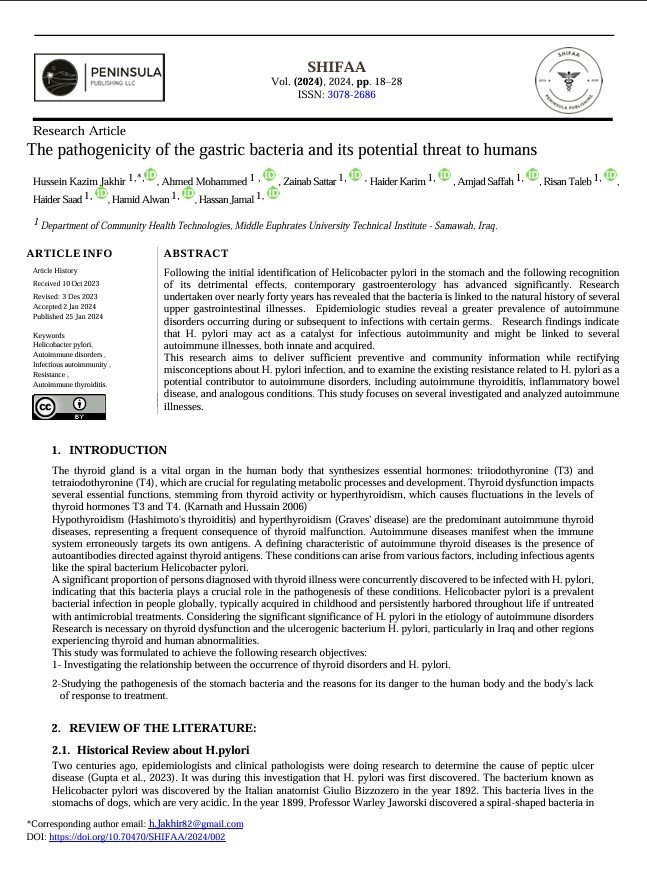The pathogenicity of the gastric bacteria and its potential threat to humans
Main Article Content
Abstract
Following the initial identification of Helicobacter pylori in the stomach and the following recognition of its detrimental effects, contemporary gastroenterology has advanced significantly. Research undertaken over nearly forty years has revealed that the bacteria is linked to the natural history of several upper gastrointestinal illnesses. Epidemiologic studies reveal a greater prevalence of autoimmune disorders occurring during or subsequent to infections with certain germs. Research findings indicate that H. pylori may act as a catalyst for infectious autoimmunity and might be linked to several autoimmune illnesses, both innate and acquired.
This research aims to deliver sufficient preventive and community information while rectifying misconceptions about H. pylori infection, and to examine the existing resistance related to H. pylori as a potential contributor to autoimmune disorders, including autoimmune thyroiditis, inflammatory bowel disease, and analogous conditions. This study focuses on several investigated and analyzed autoimmune illnesses.
Article Details

This work is licensed under a Creative Commons Attribution 4.0 International License.
